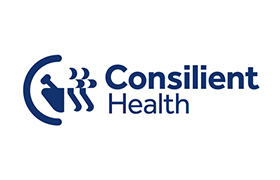Chair's Welcome and Introduction: Prof Cameron Swift

Emeritus Professor, Consultant Physician Kings School of Medicine Chair, NICE Guideline Development Group for Hip Fracture (CG124), Lead/specialist Participation Quality Standard Development, Member, NHFD Advisory Committee
Improving Hip Fracture Care: Engaging Patients and Older People with Frailty

Neil Williams Chair National Prudent Healthcare Falls Prevention Task Force (Wales) and Ageing Well in Wales; and Chair Care and Repair Cymru
• frailty as a lived experience – listening to older people
• learning from older people’s experience of hip fracture
Improving Hip Fracture Care and Outcomes : Prof Cameron Swift
Emeritus Professor, Consultant Physician, Kings School of Medicine,
Chair, NICE Guideline Development Group for Hip Fracture (CG124),
Lead/specialist Participation Quality Standard Development,
Member, NHFD Advisory Committee
• learning from the national database and implementing improvement at a local level
• key recommendations from the National Hip Fracture Database
• monitoring adherence to the NICE Quality Standard: what’s working well and
what’s not?
• identifying variation in length of stay for Hip Fractures
• monitoring the impact in your service
• ensuring that the clinical leadership is in place to deliver and audit high-quality care
Hip Fracture Care and Covid-19: Lessons Learned : Mohamed Arafa & Dr Samia Nesar

Senior Clinical Fellow in Trauma and Orthopaedics
Luton and Dunstable Hospital NHS Foundation Trust

Orthogeriatric Registrar
Luton and Dunstable Hospital NHS Foundation Trust
• how do we ensure safety for the frail elderly in our hospitals
• managing patients with hip fracture and Covid-19
• minimising delays to theatre due to medical complications
• lessons learned
- Mohamed Arafa's Biography 0.58 MBPDFfile
- Samia Nesar's Biography 0.08 MBDOCXfile
- Abstract 0.09 MBDOCXfile
- Presentation slides 2.03 MBPDFfile
EXTENDED SESSION: Using National Audit to improve Hip Fracture Care Locally:
Mr Konrad Wronka Consultant Orthopaedic Surgeon, Lead Consultant
Hip Fracture Team
Mr Jonathan Nicholson Lead Consultant Anaesthetist
West Suffolk Hospital NHS Foundation Trust
• meeting the NHFD Key Performance Indicators
• how do you convince your board to give the highest priority to hip fracture patients?
• ensuring the sicker, older, frailer patients are at the top of the surgical list
• how we have reduced delays in surgical operations as a result of avoidable inefficiencies in preoperative planning or in the organisation of theatre lists
• impact of Covid-19: changing practice
• using audit data to monitor care and prompt change
• using RCA to investigate and understand causes of breaches
• teamwork and implementation
• evaluating the impact of service change
Consilient Health promotional presentation: How does vitamin d deficiency impact healthcare?

Grant MacCalman Healthcare Partnership Manager Consilient Health
• Vitamin D deficiency has been implicated as a possible risk factor for falls and fractures in the elderly
• Over 300,000 patients present to hospitals in the UK with fragility fractures each year
• Around £2 billion in medical and social care costs – most of which relate to hip fracture care
References:
1.British Orthopaedic Association September 2007. The care of patients with fragility fracture. https://www.sign.ac.uk/our-guidelines/management-of-osteoporosis-and-the-prevention-of-fragility-fractures/ [Last accessed April 2021]
3.Dretakis OE et al. J Int Med Res 2010; 38: 1824–34.
This promotional presentation has been organised and funded by Consilient Health.
Reducing confusion & delirium following surgery : Dr Louis Koizia
Consultant Geriatrician
Imperial College NHS Trust
• improving routine screening to prevent confusion and delirium following hip fracture surgery
• meeting Key Performance Indicator 5: Not delirious when tested after operation
• improving staff confidence in reducing, recognising and treating delirium
Improving the Surgical Care Pathway for Hip Fracture
Mr Martyn Parker
Consultant Surgeon
Peterborough and Stamford Hospitals NHS Foundation Trust
• improving surgical care for hip fracture
• understanding and monitoring mortality data
• the most important factors in improving outcomes
• hip fracture and the palliative care patient
• our experience
Improving the response to emergency admissions for Hip Fracture : Dr Karen Harding Consultant Orthogeriatrician North Bristol NHS Trust

• improving hip fracture care
• issues which can arise for hip fracture patients as a result of NBHT being a "major trauma unit"
• Hip fracture review visits - learning/ideas/common themes emerging from these
The Impact of early mobilisation and improved rehabilitation : Pip White

Hip Fracture Rehab Project Lead
The Chartered Society of Physiotherapy
• delay to surgery and the impact on early mobilisation
• delivering effective physiotherapy and rehabilitation for hip fracture
• supporting people to return to their normal lives
Pip Closed todays conference by discussing the audit she has run throughout the country about the impact of Early Mobilisation & Improved Rehabilitation after Hip Fracture. Learning from Implementing the 2018 CSP Hip Fracture Standards. Pip said "Hip Fracture can kill and we really wanted to work to decrease that" "What we have learnt is that rapid change is possible" Pip closed her session by saying "Really utilising the capability of the support workers work force who can then really focus on the rehab is key" "Its Teamwork"